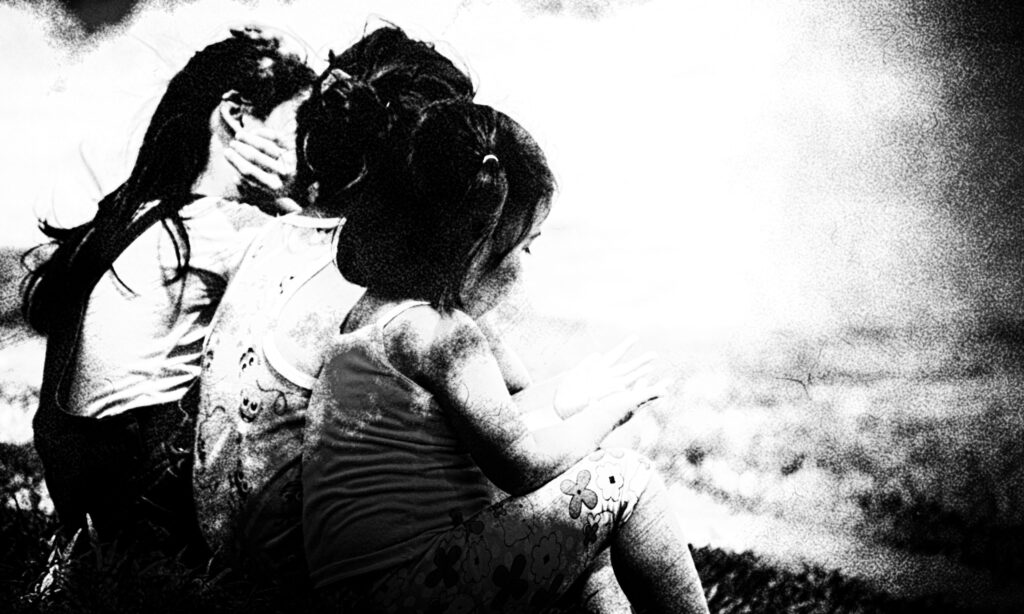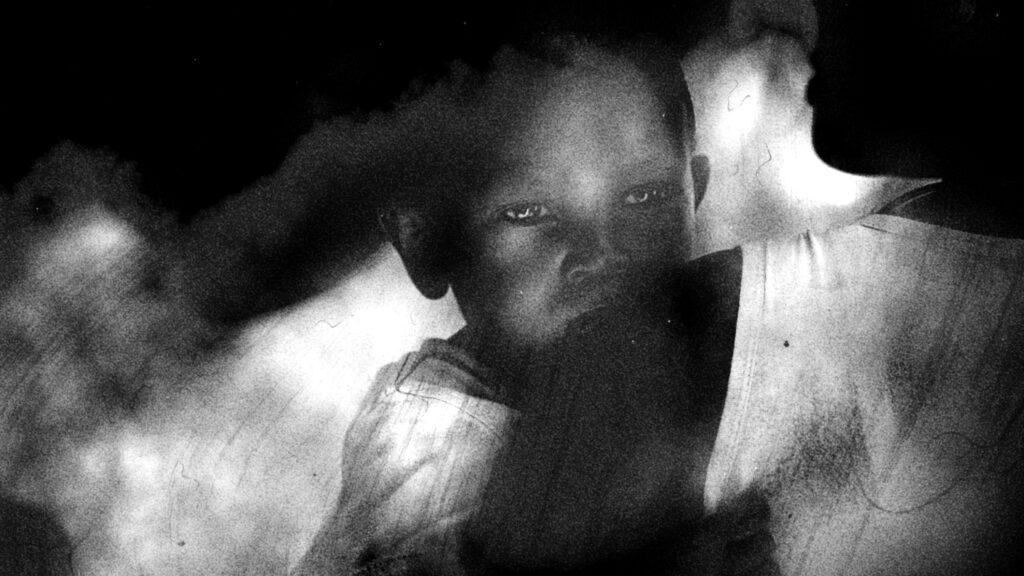Learn More
Media & Reports

Poverty amongst children in families with NRPF
Homelessness, fear of starvation and racism
Evidence for the Child Poverty Task Force
Submitted by Dr Eve Dickson and Professor Rachel Rosen, University College London, 04 August 2025
Children’s experiences of NRPF
Eve Dickson and Rachel Rosen (1 July 2025) ‘”I was worried I was going to starve” – children’s experiences of the NRPF system’, Children & Young People Now.
Read full report. (3 min read).
Section 17 support for families with NRPF
Report by Eve Dickson and Rachel Rosen, June 2023 (London: Solidarities Project, UCL).
POLICY BRIEFING: Section 17 support for families with ‘no recourse to public funds’ (NRPF) in London.
Evidence on Family migration
Rachel Benchekroun, Eve Dickson and Rachel Rosen, 14 September 2022 (University College London)
Written evidence to the Justice and Home Affairs Committee Call for Evidence on Family migration.

Bordering social reproduction
Bordering social reproduction explores what happens when migrants subject to policies that seek to deny them the means of life nonetheless endeavour to make and sustain meaningful lives. Developing innovative theorisations of welfare bordering, the volume provides rich ethnographic insights into the everyday lives of destitute mothers and children who are denied mainstream welfare support in the United Kingdom due to their immigration status. This book shows how enforced destitution and debt work alongside detention and deportation as part of a tripartite of exclusionary technologies of the racial state. It advances the novel concept of weathering to comprehend mother’s and children’s life-making practices under duress – arguing that these are neither acts of heroic resilience nor solely symptomatic of lives rendered disposable, but indications of the fragilities of repressive migration regimes and, on occasion, refusals to accept their terms of existence.
Crisis for whom?
Rosen R, Chase E, Crafter S, V. Glockner and S. Mitra (eds.) (2023) Crisis for whom? Critical global perspectives on childhood, care, and migration. London: UCL Press.
A complex and nuanced interdisciplinary exploration of childhood in the context of ‘migration crises’ narratives. Children are often depicted as essentially vulnerable and in need of special protections, or suspiciously adult-like and a threat to national borders. At the same time, many voices, experiences, and stories are rarely heard, especially about children on the move within the global South. This bilingual book, written in English and Spanish, challenges simplistic narratives to enrich perspectives and understanding. Drawing on collaborations between young (im)migrants, researchers, artists and activists, this collection asks new questions about how crises are produced, mobility is controlled, and childhood is conceptualised. Answers to these questions have profound implications for resources, infrastructures, and relationships of care. Authors offer insights from diverse global contexts, painting a rich and insightful tapestry about childhood (im)mobility. They stress that children are more than recipients of care and that the crises they face are multiple and stratifying, with long historical roots. Readers are invited to understand migration as an act of concern and love, and to attend to how the solidarities between citizens and ‘others’, adults and children, and between children, are understood and forged.
La niñez ocupa un lugar central en las narrativas omnipresentes de las “crisis migratorias”. A menudo ésta es representada como esencialmente vulnerable y necesitada de protección especial, como sospechosamente parecida a los adultos, o como una amenaza para las fronteras nacionales. Al mismo tiempo, existen muchas voces, experiencias e historias que rara vez son escuchadas, especialmente aquellas que hablan sobre las infancias en movimiento dentro del Sur global. ‘Este libro bilingüe, escrito en inglés y español, desafía las narrativas simplistas para enriquecer nuestra perspectivas y comprensión. Basada en colaboraciones entre jóvenes (in)migrantes, investigadores, artistas y activistas, esta colección plantea nuevas preguntas sobre cómo se producen las crisis, cómo se controla la movilidad y cómo se conceptualiza a la infancia y la niñez. Las respuestas a estas preguntas tienen profundas implicaciones para la distribución de recursos, la infraestructura y las prácticas de cuidado. Las y los autores ofrecen perspectivas que surgen de diversos contextos globales, construyendo un rico y detallado tapiz sobre la (in)movilidad infantil. Destacan que niñas y niños son mucho más que simples receptores de cuidados y que las crisis que enfrentan son múltiples y estratificadas, con profundas raíces históricas. Se invita a las/os lectoras/es a entender la migración como un acto de concientización y amor, y a poner atención en cómo se entienden y forjan las solidaridades entre ciudadanos y aquellos que son percibidos como “otros”; entre adultos y niñas/os, y entre las/os niñas/os mismas/os.
Books
Journal Articles

“The exceptions to child exceptionalism”
Abstract: Free School Meals (FSM) have been the site of renewed contestation and extensive campaigning in the last half-decade. Until recently, children in families with ‘no recourse to public funds’ because of their immigration status were excluded from accessing FSMs, despite being some of the most destitute in Britain. Through an analysis of campaign materials and interviews with advocates, we consider this dynamic policy terrain in light of the UK’s ‘hostile environment’ and consider lessons for campaigners. By exploring imaginaries of childhood, poverty, and nation shaping FSM policies, we offer a warning that campaigns can end up justifying exclusions at the same time as aiming for more expansive support. How campaigns represent their causes has implications, which, in this case, is often through the exceptionalism and hyper-deservingness of childhood. We argue these representations reduce discussion to technical questions about who is ‘deserving’, thereby risking shoring up an exclusionary and hostile state.
“Punishing Those Who Do the Wrong Thing”
Eve Dickson and Rachel Rosen (2021) “Punishing Those Who Do the Wrong Thing”: Enforcing Destitution and Debt through the UK’s Family Migration Rules. Critical Social Policy, 41(4): 545–565.
Abstract: In 2012, the ‘no recourse to public funds’ (NRPF) condition was extended to long-standing migrant families in the UK who had previously achieved rights to residence and welfare through human rights mechanisms. Through close examination of policy, political statements, and media coverage, we make the case that the NRPF extension was – and continues to be – intentionally subjugating and punitive, most aptly understood as a policy of enforced destitution and debt imposed on negatively-racialised post-colonial subjects. In drawing out the implications of our argument, we point to time, destitution, and debt as core technologies of the UK’s migration regime, alongside everyday bordering, detention, and deportability. Denying support through NRPF serves to exclude putatively included migrants while normalising conditional approaches to social support. Our article reveals why moral arguments against NRPF based on destitution fail and suggests that challenging welfare bordering requires a more systemic appraisal of policy frames, intentions and effects.
“An absent presence”
Rosen R, Crafter S and Meetoo V (2021) An absent presence: separated child migrants’ caring practices and the fortified neoliberal state. Journal of Ethnic and Migration Studies 47(7): 1649-1666.
Abstract: This paper explores the ambivalent positioning of separated child migrants in the UK with a focus on the care that they provide for each other. Drawing on interview data with state and non-state adult stakeholders involved in the immigration-welfare nexus, we consider how children’s care practices are viewed and represented. We argue that separated children’s caring practices assume an absent presence in the discourses mobilised by these actors: either difficult to articulate or represented in negative and morally-laden terms, reflective of the UK’s ‘hostile environment’ towards migrants and advanced capitalist constructions of childhood. Such an examination sheds light on the complex state attempts to manage the care and migration regimes, and the way that care can serve as a way of making and marking inclusions and exclusions. Here we emphasise the political consequences for separated child migrants in an age of neoliberal state retrenchment from public provision of care and rising xenophobic nationalism.
“Racialising age in the UK’s border regime”
Abstract: Processes for assessing the age of young unaccompanied migrants have been roundly critiqued, with new concerns in the UK being raised about the increasing use of ‘scientific’ approaches. In this article, we suggest that, taking everything into account, analyses do not go far enough, arguing that technical questions of how ‘best’ to assess age or the new incursion of biometric measurements can obscure the political question of what work age does in hostile border regimes. As a result, the underpinning logics of age assessment – an essentialisation of age, ‘race’ and borders – are not only left in place but further augmented. We demonstrate, through a careful curation of assessment reports (that operate through the assertion of truth claims about the body, childhood and time) how such reports draw on and reproduce multiple and intersecting racist imaginaries as they are synthesised with developmental logics around childhood. Age, we argue, is being weaponised in the service of post-racial fantasies in liberal democracies, rising ethnonationalism and state retrenchment from social support.

Childhood in and through social reproduction theory
Rosen R (2023, forthcoming) Childhood in and through social reproduction theory. In: Balagopalan S, Wells K and Wall J (eds) Handbook of Theories in Childhood Studies. London: Bloomsbury Academic.
Questions of social reproduction, or how lives are made and sustained, and labour power is replenished, strike at the heart of contemporary societies in the context of widening financialization and the emergence of new forms of inequality and deepening of old. Children are hyper-present in accounts of life-making practices; however, childhood remains marginal in accounting for this reproductive labour. Nonetheless, I argue that social reproduction theory is a potent orientation from which to understand and conceptualise children’s lives and, in turn, that childhood studies can offer insights for renewed conceptualisations of social reproduction. I elaborate three areas where such generative synergies exist: children’s involvement in reproductive labour; the explanatory power of social reproduction in relation to the subordination of children as a social group; and how attention to children’s reproductive labour and the figure of the child can provide glimpses into spaces that accumulation regimes fail to conquer and where their fragilities lie.
Hunger or indebtedness?
Eve Dickson, Rachel Rosen, and Kehinde Sorinmade (2023) Hunger or indebtedness? Enforcing migrant destitution, racializing debt. In Paul Gilbert, Clea Bourne, Max Haiven and Johnna Montgomerie (Eds). The entangled legacies of empire: Race, finance and inequality. Manchester: Manchester University Press.
Abstract: This paper explores the ambivalent positioning of separated child migrants in the UK with a focus on the care that they provide for each other. Drawing on interview data with state and non-state adult stakeholders involved in the immigration-welfare nexus, we consider how children’s care practices are viewed and represented. We argue that separated children’s caring practices assume an absent presence in the discourses mobilised by these actors: either difficult to articulate or represented in negative and morally-laden terms, reflective of the UK’s ‘hostile environment’ towards migrants and advanced capitalist constructions of childhood. Such an examination sheds light on the complex state attempts to manage the care and migration regimes, and the way that care can serve as a way of making and marking inclusions and exclusions. Here we emphasise the political consequences for separated child migrants in an age of neoliberal state retrenchment from public provision of care and rising xenophobic nationalism.
Chapters
Presentations

“(En)Countering raceless narratives”
Rosen, Rachel and Eve Dickson (2022). (En)Countering raceless narratives: Migrant mothers and children with ‘no recourse to public funds’. BSA Virtual Annual Conference 2022: Building Equality and Justice Now, online 21 April 2022.
Abstract: In the UK, the ‘no recourse to public funds’ (NRPF) condition borders social support for undocumented migrants and those with time-limited leave to remain. Previous research has highlighted NRPF’s detrimental impacts, particularly on single-parent families headed by mothers from former British colonies, who are racialised as ‘Other’ and already economically marginalised.
Drawing on an ethnographic study with such mothers and their children, we consider the ways that ‘race’ and racism appeared in our interlocutors’ narratives. We demonstrate that suffering was articulated most profoundly, and made sense of, largely through ‘de-raced’ interpersonal encounters. Where ‘race’ did appear explicitly, it referred to micro-level aggressions by intimate others, usually other people of colour, or in abstract terms of ‘good’ Whiteness. What’s more, in much of the scant scholarship on NRPF, we find a striking absence of ‘race’, with systemic racism rarely granted explanatory purchase. Speaking against such erasures, we argue for the importance of listening to silences to address the ways that racism pervades Britain’s internal and external borders. In asking what we can learn from its presence and absence, we offer three tentative ways of making sense of the spectre of ‘race’/racism: (1) The overdetermined Whiteness of the research encounter. (2) A context where post-racial fantasies dominate state discourses and individualised neoliberal subjectivities prevail. (3) The often faceless and fleeting nature of encounters between families with NRPF and the state, which mean that systemic racism is obscured by hyper-violent interpersonal acts and the daily challenges of sustaining life under duress.
“The exceptions to child exceptionalism”
Rosen, Rachel and Eve Dickson (2022). The exceptions to child exceptionalism: Migrant deservingness in the UK’s free school meal debates. Children and Young People Hub University of Edinburgh. Zoom, 1 February 2022.
The ‘no recourse to public funds’ (NRPF) condition, which is imposed on people ‘subject to immigration control’, forms a key part of the UK’s punitive migration regime, bordering access to social support for migrants who need it. One example, and this talk’s focus, is the denial of free school meals (FSM) to children in families with NRPF, some of the most destitute in Britain. This has long been a concern for migrants’ rights groups and families navigating everyday borders in the UK. Recent campaigns and threats of legal action have resulted in some children affected by NRPF becoming temporarily eligible for FSM during the pandemic, but campaigns for access have continued due to ongoing problems with the policy. This talk explores the imaginaries of childhood, poverty and nation which shape such policies and offers a warning that, without reflecting on and even challenging these imaginaries, campaigns can end up justifying exclusions of some migrant families at the very same time that they aim for more expansive support. We argue that how campaigns represent their causes – which, in the case of FSM, is often through the exceptionalism and therefore hyper-deservingness of childhood and a focus on the extraordinary circumstances of Covid – has implications. These representations, we suggest, can ultimately end up narrowing political imaginaries and reducing discussion to technical questions about who is ‘deserving’, and, in the process, risk shoring up an exclusionary, nativist and hostile state.
“New Imaginaries for Countering Welfare Bordering”
Dickson, Eve and Rosen, Rosen (2021). New Imaginaries for Countering Welfare Bordering: A Case Study of Enforced Destitution and Debt in the UK’s Family Migration Rules. Sociological Knowledges for Alternative Futures, 15th ESA Conference. Online, 1st September 2021.
In 2012, the ‘no recourse to public funds’ (NRPF) condition was extended to long-standing migrant families in the UK who had previously achieved rights to residence and welfare through human rights mechanisms. Through close examination of policy, political statements, and media coverage, we make the case that the NRPF extension was – and continues to be – intentionally subjugating and punitive, most aptly understood as a policy of enforced destitution and debt imposed on negatively-racialised post-colonial subjects. In drawing out the implications of our argument, we point to time, destitution, and debt as core technologies of the UK’s migration regime, alongside everyday bordering, detention, and deportability. Denying support through NRPF serves to exclude putatively included migrants while normalising conditional approaches to social support. Our paper reveals why moral arguments against NRPF based on destitution fail. In response, we argue that challenging welfare bordering requires a more systemic appraisal of policy frames, intentions and effects, and the development of alternate imaginaries of solidarity and belonging.
“Social reproduction in the shadows”
Rosen, Rachel and Eve Dickson (2021). Social reproduction in the shadows: Migrant mothers and children with “no recourse to public funds”. Special panel: Breaking the Borders of Home: Transformations of Care and Reproductive Work at Borders, borderlands and bordering: RGS-IBG Annual International Conference 2021. London/zoom, 1st September 2021.
In the United Kingdom (UK), migrants ‘subject to immigration control’ are not allowed to access most welfare benefits or social housing. This policy was officially incorporated into the Asylum and Immigration Act 1996 under the moniker ‘no recourse to public funds (NRPF)’. Since July 2012, in the context of the state’s publicly proclaimed ‘hostile environment’ towards people on the move, the use of the NRPF condition has been extended to long-resident families with legally recognized, but temporary, immigration status, as well as undocumented migrants. Drawing on data from a ‘day in the life’ ethnographic study with single mothers with NRPF and their children, in this paper we argue that NRPF can be understood as a form of “organized state abandonment” (Gilmore 2007). By denying these mothers and children support and benefits necessary for their survival, the effects of British state policy are enforced debt and destitution for working class families with origins in Britain’s erstwhile colonial empire. In this paper, we explore the implications for social reproductive labour, pointing to the ways that such abandonment forsakes migrant mothers and children, leaving them to sustain themselves in the shadows of the austere state. This produces the conditions of super-exploitability in care and provisioning and deepens the material and ideological stratification of social reproductive labour through the production of (formally included) surplus populations.
“A rule without a purpose?”
Eve Dickson (2024). A rule without a purpose? Looking historically at the ‘no recourse to public funds’ immigration policy. Oxford: COMPAS Seminar series Migrants’ Access to the Welfare State, 7th March 2024.
In recent years, we have witnessed rising interest in the welfare-migration nexus in Britain, most notably in the ‘no recourse to public funds’ (NRPF) immigration condition, which briefly entered the public domain when former Prime Minister Boris Johnson revealed his surprise at the policy’s existence during the Covid-19 pandemic. Research and advocacy link the widespread use of NRPF to either the Immigration and Asylum Act 1999, which contains the current iteration of the rule, or the emergence of the UK’s self-proclaimed ‘hostile’ immigration environment in 2012. This risks presentism and methodological nationalism by obscuring NRPF’s longer history and the colonial roots of European welfare states. Drawing on early-stage research as part of the Social Reproduction in the Shadows: Making Lives with No Recourse to Public Funds project, this talk explores some central aspects of the history of the NRPF policy and its contestation to better understanding how and why the policy has changed over time and to what effect.
